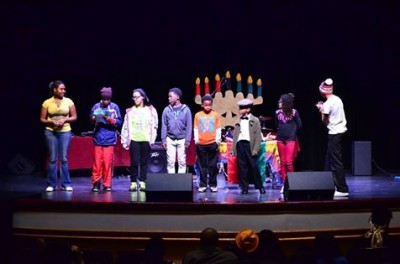
Kwanzaa Kujichagulia (self determination) youth night
Kwanzaa is often thought of as an African American holiday that takes the place of Christmas. This cultural celebration was created by Dr. Maulana Karenga to help blacks in the United States embrace the lifestyle of their ancestors. Dr. Karenga introduced this concept in 1966 during a time coined as the Black Freedom Movement. This period was also a delicate time because of black people marching and rallying for our legislative branch of government to pass the Civil Rights Act of 1965.
Though created in the midst of trying to help African Americans find an identity, Kwanzaa was not designed exclusively for people of color. The seven principles can be used by any race to enhance unity amongst all of mankind. Dr. Karenga chose the African Swahili language and symbols because they are the most known and used throughout the world. The whole idea is based on harvest time from crops. Kwanzaa means first fruit.
The seven principles are represented from December 26 through January 1 and are referred to as Nguzo Saba. Kwanzaa places emphasis on Umoja (unity), Kujichagulia (self-determination), Ujima (collective work and responsibility), Ujamaa (cooperative economics), Nia (purpose), Kuumba (creativity) and Imani (faith). Each day a candle is lit to symbolize the idea of the day. The goal of celebrating these seven days of fundamentals are merely a springboard to be practiced every day of the year. It’s also a method to inform people who aren’t African Americans of the significance of Pan African legacies.
On December 27 at 7 p.m., a group of youth will hold a talent show and discussion centered around the Kujichgulia theory of self-determination at the Douglass Theatre. For more details, call 478-361-2880.
Recent Content
-
Artsarticle ·
-
Artsarticle ·
-
Artsarticle ·
